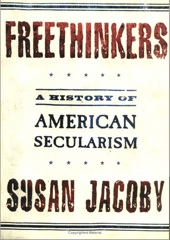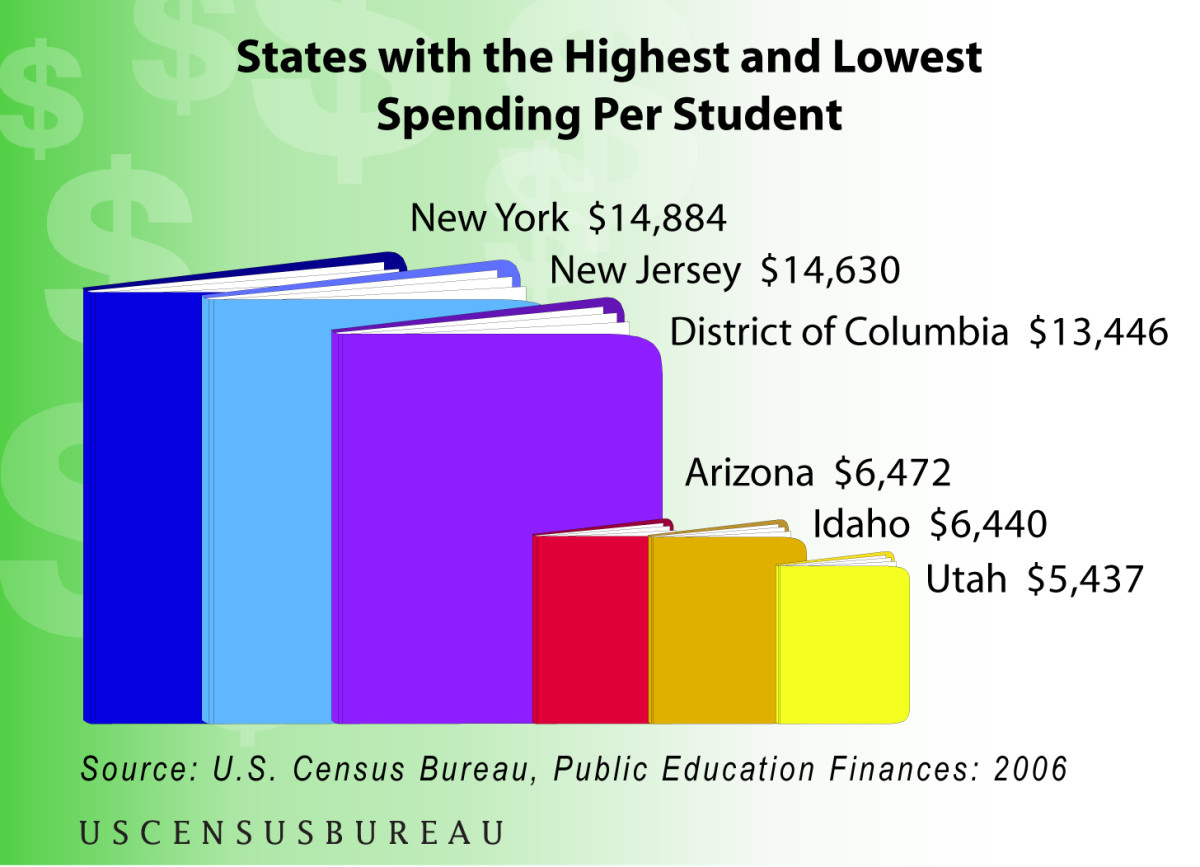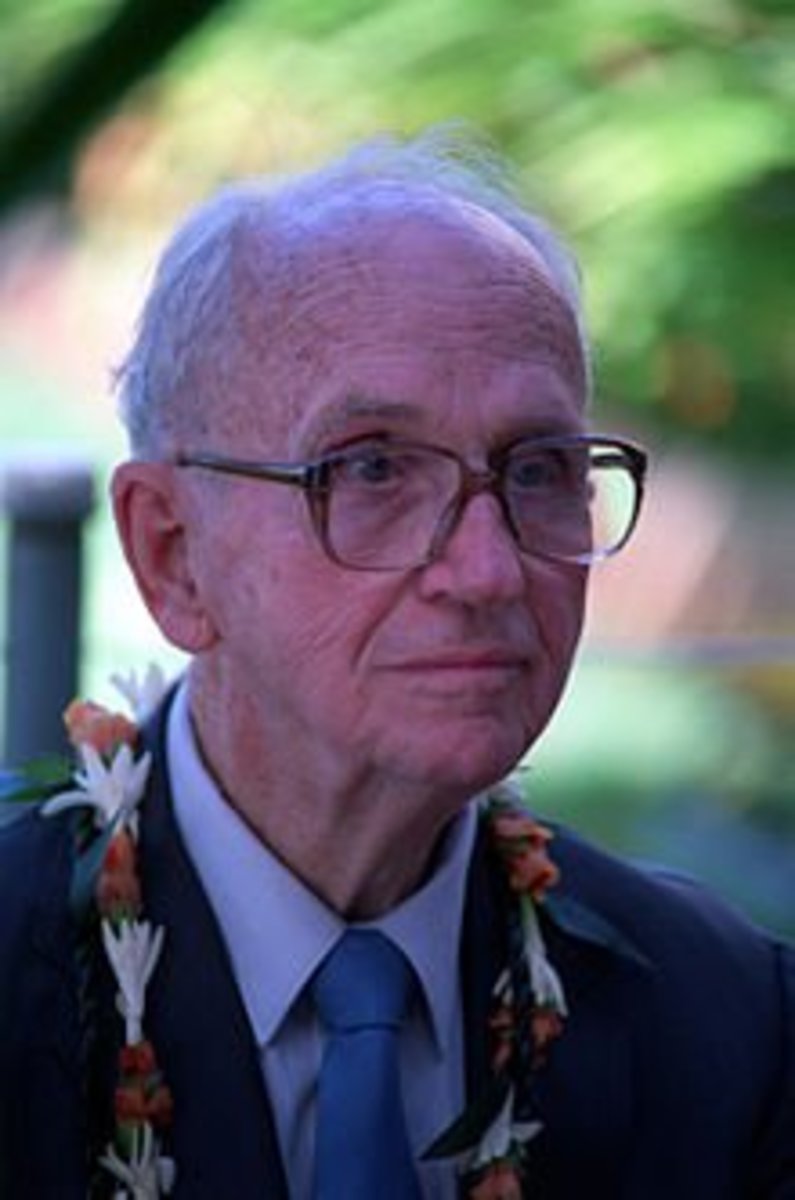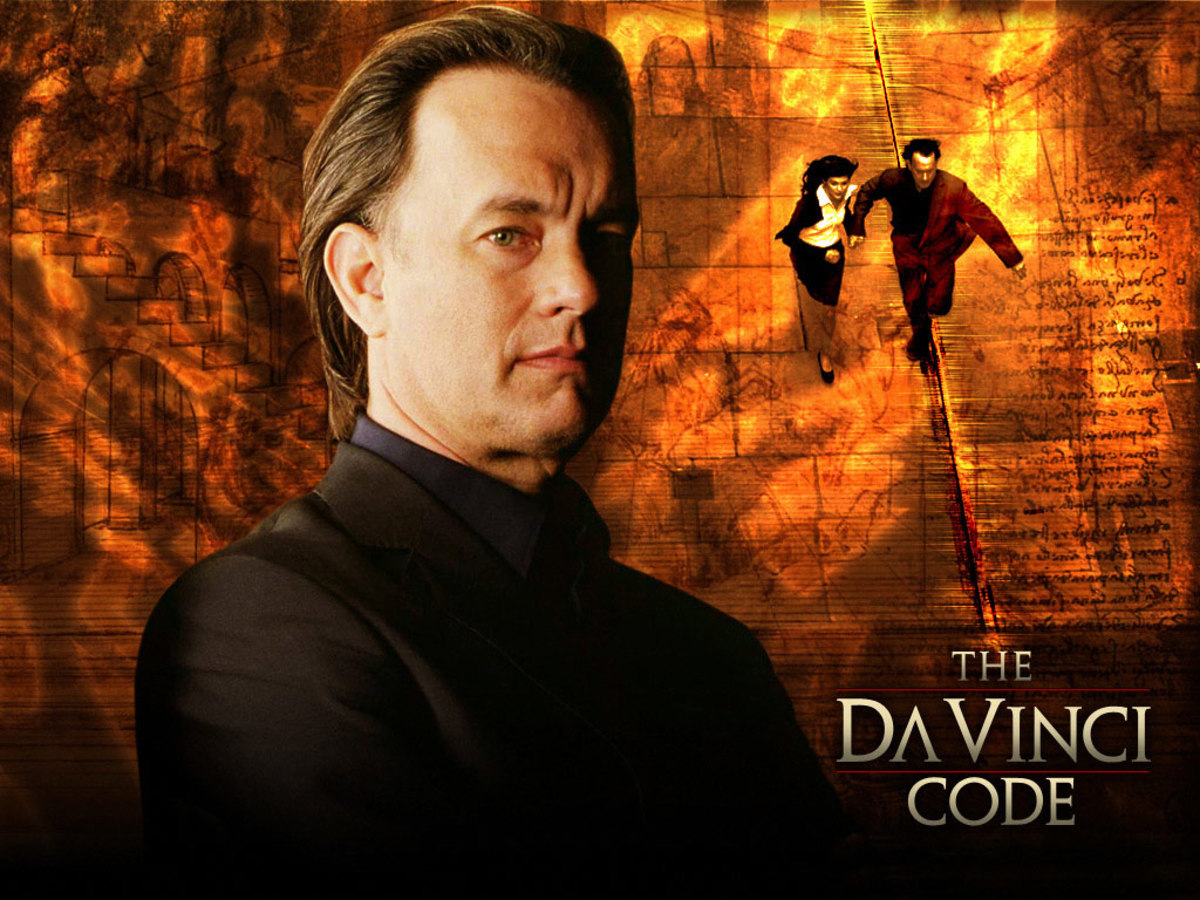Really Free Freethinkers?

Susan Jacoby’s book “Freethinkers” is an enlightening, engaging and interesting read. The book suggests that the secularist strain in American culture started with the birth of the nation. The early founders of the United States were people who were fleeing from Europe where religious zealotry, excessive religious authority and lack of personal freedom were customary. These people were not without religion themselves. Indeed among them were people belonging to various Protestant branches including Episcopalians from the old Church of England, Dutch Reformists, French Huguenots, Baptists and Moravians. People of the Jewish faith were also present. The last thing these founders wanted was a new world where religious intolerance or religious restrictions were practiced. The rebellious, non-conformist nature of the founding peoples resulted in a society where religious pluralism flourished along with freedom of thought. Ancient religious dogma and rivalries did not however go away completely. For the next 100 years, secular humanism would rise and there would be a struggle to maintain separation of church and state. With the Declaration of Independence in 1776 came the serious matter of forming a government. The issue of what should the role of the church be took center stage. For freethinkers this was a pivotal time. In 1779 Jefferson proposed separation of church and state and in 1786 Virginia approved an Act establishing religious freedom. Freethinkers like Washington, Jefferson and Madison worked at crafting the wording of the Declaration of Independence as well as the Constitution in 1787. Freethinkers worked to ensure the separation of church and state. The Declaration of Independence contains a clear distinction between “the laws of Nature and of Nature’s God”…. The Constitution contains the mighty words “we the people...” explicitly recognizing that it is people, not an unseen God, who should decide how people are governed. Jefferson was also the person who first coined the phrase “wall of separation of church and state” in a letter in 1802 to the Danbury Baptists. This was a time when freethinking was beginning to grow outside the body politic.
One individual who did a lot during this period to challenge religious authority was Thomas Paine. Thomas Paine was born in England in 1737. He was largely self taught and was not happy passively observing social injustices. At an early age he became a social activist and worked to correct social injustices. For example, he worked to elevate the cause of Jews who were forced to pay taxes but who were not allowed to vote. He also worked to improve the wages of tax collectors and this cost him his career. Benjamin Franklin befriended Paine and assisted him in migrating to Philadelphia in 1774. Paine combined his passion for causes with his flair for writing and wrote articles condemning slavery and soon became an advocate for rebellion against England. In 1776 Paine published “Common Sense”, a call to take up the cause of independence from England. With this work, Paine became a full fledged revolutionary, fighting with Washington on the front lines. In 1798 Paine returned to England and in 1791 published “The Rights of Man”, a defense of the French Revolution and a call for the end of the monarchy. The French Revolution itself was initially received with jubilation in America but the unnecessarily bloody aftermath of the French Revolution turned off many Americans. By the time his book was published in 1791, Americans were generally not thrilled with the excesses of the French Revolution and so Paine’s book received a mixed reception. In 1794 Thomas Paine published the “Age of Reason”. This book got him into trouble with Americans as it attacked institutionalized religions including Christianity. Paine asserted “The Jews say their Word of God comes from Moses, the Christians say their Word of God comes from divine inspiration while the Turks (Muslims) say their Word of God was brought by an angel from heaven. Each church accuses the other of disbelief. I disbelieve them all”. This brave man had the fortitude to speak his mind, to put forth his ideas on separation of church and state and to do so without concern for the consequences. And the consequences were severe. With help from Washington, Paine returned to America. He discovered that the power and influence of organized religion had grown and that his own stature had diminished. Paine was labeled an infidel by the religious establishment and after death he was buried in an unmarked grave. In 1859, there was an event that had a profound impact on organized religions around the world and on the secular humanist movement in America. Darwin published his theory of evolution and with it Science was unleashed. People began to see that reason could be applied to explain observable events. It was not necessary to invoke an unseeing God. The period 1850 to 1914 saw great progress in science, technology and in industrialization. By 1876, there were telephones, typewriters, cables for the Brooklyn Bridge and steam engines. By 1879, the incandescent bulb glowed, by 1880 medicines from Lister, Pasteur and Koch were available to cure infections and combat superstition. By 1882, there was an electric power plant in New York City. Secular humanism was fashionable again as people could see the products of reasoning. The theory of evolution and the expansion of science affected many freethinkers including Robert Ingersoll. It propelled him to spread the word much like an evangelical preacher. Ingersoll was born in 1833, he was one of the most famous and influential men in America in his time and earned a reputation as the “Great Agnostic”. Ingersoll stood for secular values and suggested fundamentalist religious values had no place in running a civil government. He fought against the death penalty and corporal punishment. He traveled and lectured tirelessly throughout the United States to spread his message. Like Paine, Ingersoll too had a price to pay. Marked as an agnostic by organized religions, Ingersoll could not hope to hold high political office. To this day this prejudice continues. Any politician who openly describes himself as an atheist or agnostic is seen as unpatriotic and will most likely not gain high office. There is no one today who is as courageous and influential as Ingersoll was. Ingersoll died in 1899. Between 1870 and 1900, secularism and the church flourished. The Catholic population grew from 38 million to 74 million. People seemed willing to accommodate the views of others. Perhaps this was a period of tremendous growth and success and people simply did not have the time or inclination to split hairs over petty issues. Then came World War I and the Great Depression and rationalism started to diminish in popularity and has decayed ever since. Susan Jacoby’s book points to a number of factors contributing to this. The new wave of immigrants from Eastern Europe may have been steeped in religion. Since they did not experience the Civil War or slavery it may have been difficult for them to relate to the issues freethinkers were concerned about. In America, cities grew and tax supported religious schools were established. Education is a compelling force and even people who sympathized with freethinkers wanted their children educated. Finally wars and depressions have a way of frightening people and frightened people turn to God instead of man.
In the period since 1914, the church has grown to the point where it dominates the political landscape today. It is almost ironic but we seem to be returning to the Europe of 1776 where religion dictated the affairs of the state. There have been some landmark events shaping the debate since 1914. These include the famous 1925 Scopes trial in Dayton, Tennessee where mention of evolution was forbidden. The brilliant work of Clarence Darrow is forever etched in the story of separation of church and state. The stamping of “In God we trust” on coins and adding “under God” to the Pledge of Allegiance are also pivotal in the ongoing struggle. Where are we today in the balance between church and state? The speech by Supreme Court Justice Antonin Scalia's in 2002 at the University of Chicago Divinity School demonstrates that the pendulum has swung over to the Conservative Christian religious right. In his address, Justice Scalia strongly supports the death penalty and is not comfortable with the way democracy tends to take God out of government. Justice Scalia stated that “The reaction of people of faith to this tendency of democracy to obscure the divine authority behind government should not be resignation to it, but the resolution to combat it as effectively as possible. Scalia also professes that Christians need to fight for the separation of church and state. Justice Antonin Scalia wants America to see his particular brand of right wing constitutional thinking. Scalia’s remarks show a strong dislike for the Constitution’s approach to religion and eager advocacy for the submission of the individual to the state. In his view the founding fathers believed in a Christian view of punishment and vengeance; and this makes the death penalty perfectly moral. The more Christian a county is, he argues, the less likely it is to regard the death penalty as immoral. Scalia has trouble with the current Catholic Church’s position on the death penalty and other issues, which he condemns as sweeping aside 2,000 years of Christian teaching. In Susan Jacoby’s analysis, Scalia boldly believes that the state derives its power not from the people (as in “we the people….”) but from God. God has the power of life and death and so lawful governments have the right to kill wrong doers. America seems to have gone full circle and is recreating the Europe of 1776.
What does all of this bode for the future? I believe that secular humanism and institutionalized religions need each other. Society needs secular humanists and organizations such as ACLU to provide a check and balance on overzealous religious organizations. Society also needs institutional religions to provide tradition, humility and purpose for each individual. Secular humanism has always existed and will I believe continue to exist. In fact, I believe that while most Americans are sincere in their religious beliefs they are pragmatic as well. For example, although the Pope in Rome asserts that Roman Catholics should not use contraceptives, most American Catholics seem to practice family planning in one form or another. Families of six, eight, ten, or twelve kids are rarely seen anymore. The recent election of Tim Kaine as governor of Virginia provides an example of how the “great unwashed” can make clear distinctions between religious dogma and the pragmatics of a secular society. Candidate Kaine is a Roman Catholic and as such is expected to heed the ruling of the Pope that capital punishment is wrong. In the state of Virginia, however, capital punishment is constitutional and enforced. The issue in the election became the following. As Governor, would Tim Kaine follow his religious beliefs or follow the laws of the State of Virginia? Tim Kaine chose to let the electorate know that his job as Governor would require him to up hold the laws and that it was his intention to do so. In the campaign Kaine made a clear distinction between his personal religious beliefs and the requirements of the Governor’s office. I believe this played a key role in helping him win. I find this example interesting because both Tim Kaine and the Virginia electorate were able to draw a line between church and state by applying reason. For me, one of the most telling and reassuring event of this young nation’s democracy took place last week. Residents of Dover, Pennsylvania voted out almost every member of the school board. Eight people ran against a policy of mentioning intelligent design in science classes. What’s great about this story is that the people who voted out the former school board describe themselves as religious. People can recognize the excesses of religion and stand up against it. In other words, good old fashioned American common sense prevailed. A purely secular humanist government scares people. I believe people are generally sympathetic to the views of secular humanists but they are caught in a “twilight zone” of not wanting to have to give up their strongly held religious beliefs. Given the choice they will favor religion because many more people believe in God than believe in man. Indeed they blame the excesses of religion on man and not on God. Secondly, our society does not trust man. Has man earned our respect? Not really. Just look at the mess mankind has created with wars, poverty, pollution of the environment, nuclear, chemical and biological weaponry and the potential threat of global warming. Scientific advances promise mankind many benefits but somehow they create many more problems than they fix. The ethical, social and legal problems swirling around designer babies, human cloning and stem cell research attest to this. Thirdly, Americans have a cherished tradition of rugged individualism. The American spirit was born in fires of freedom. They believe in freedom from domination by government, by religion, by any outsider. Americans feel uneasy paying homage to the Pope in Rome, as Roman Catholics must do or to the head of the Church of England, as Anglicans must do. Americans prefer instead to roll their own, to invent their own religions e.g. Evangelicals, Mormons, Southern Baptists and spread their religions across the Earth. Americans recognize the need to have a government but would like it to be small and non-intrusive. Americans do not like others telling them what to do, how to think, how to act. They prefer instead to be independent minded, to make their own decisions based on either their beliefs or on facts presented to them. They are generally not sheep-like. This rugged individualism poses a dilemma for both secular humanists and for institutionalized religions. Both depend on having the masses follow a set of prescribed rules. For individuals, that is something that is entirely alien to the American spirit.
Lastly, Americans are aware of the excesses that religion can create. Americans can relate to modern day examples of religious tyranny provided by the Taliban regime in Afghanistan, by the unending conflicts in Ireland, Israel and Kashmir to name a few. From this they get a sense that religion can drive people to excess and some measures of balance must prevail.
Secular humanists and organizations like ACLU play a vital and needed role in ensuring that the original intent and meaning of the Constitution is maintained. Their role can be seen in landmark decisions like Roe v Wade. The American experiment in democracy goes on and so too the debate on where to draw the line between church and state. This debate will go on forever and I think this is a good thing. In Science, it has been pointed out that while tsunamis and hurricanes devastate, they also have a beneficial side. They stir up the bottom of the ocean thereby bringing nutrients to areas of the ocean that need it. They renew and reinvigorate life. Challenges to the Constitution on separation of church and state are like political hurricanes in that they come ashore and for a while wreck havoc on the political landscape. When they recede, some of us are bruised by it but we all take something positive away as well. The debate leaves us richer. And as with real hurricanes we know for sure that next year will bring another season of challenges. This more than anything else keeps the American experiment in democracy alive, strong and exciting.








